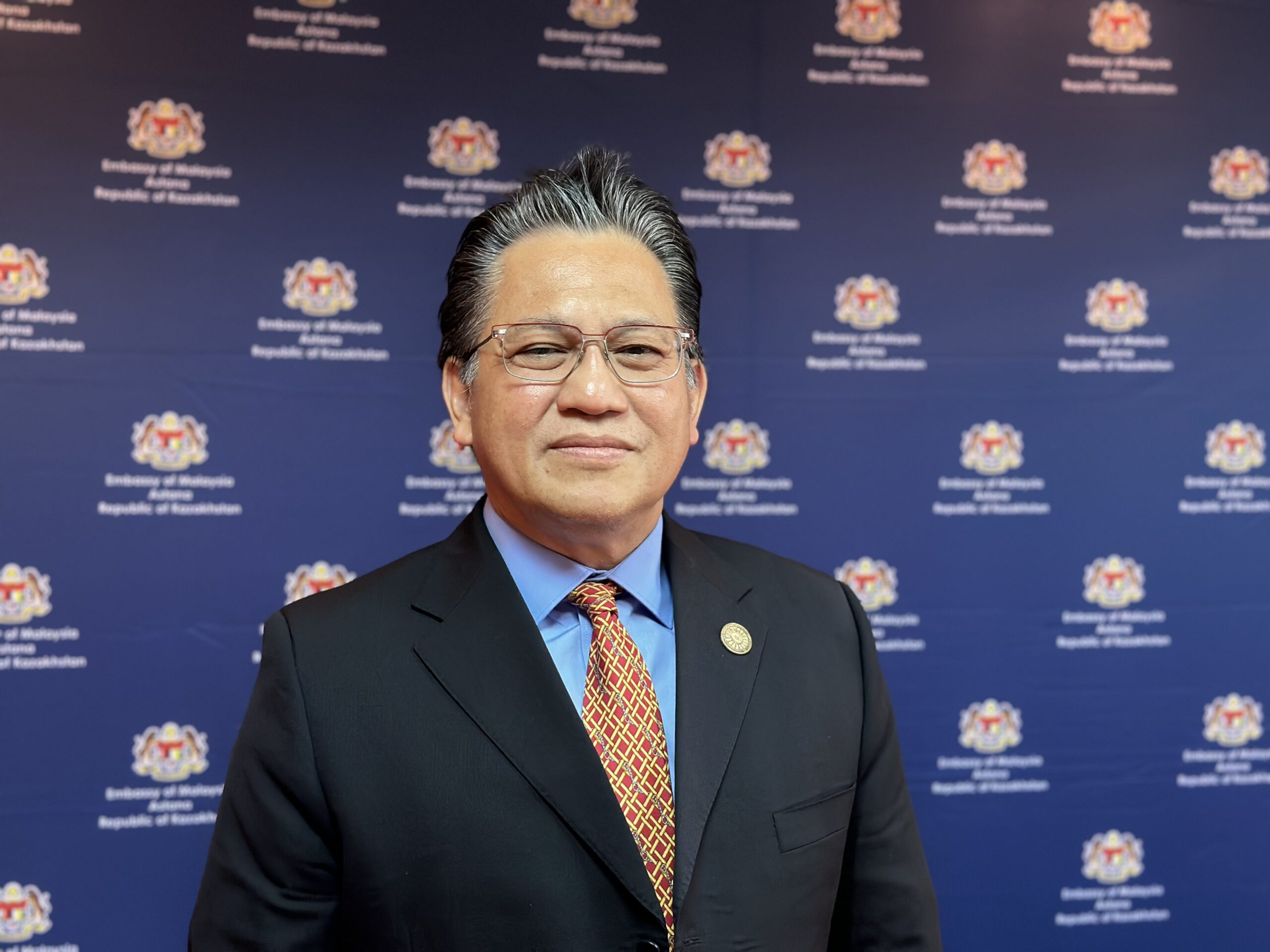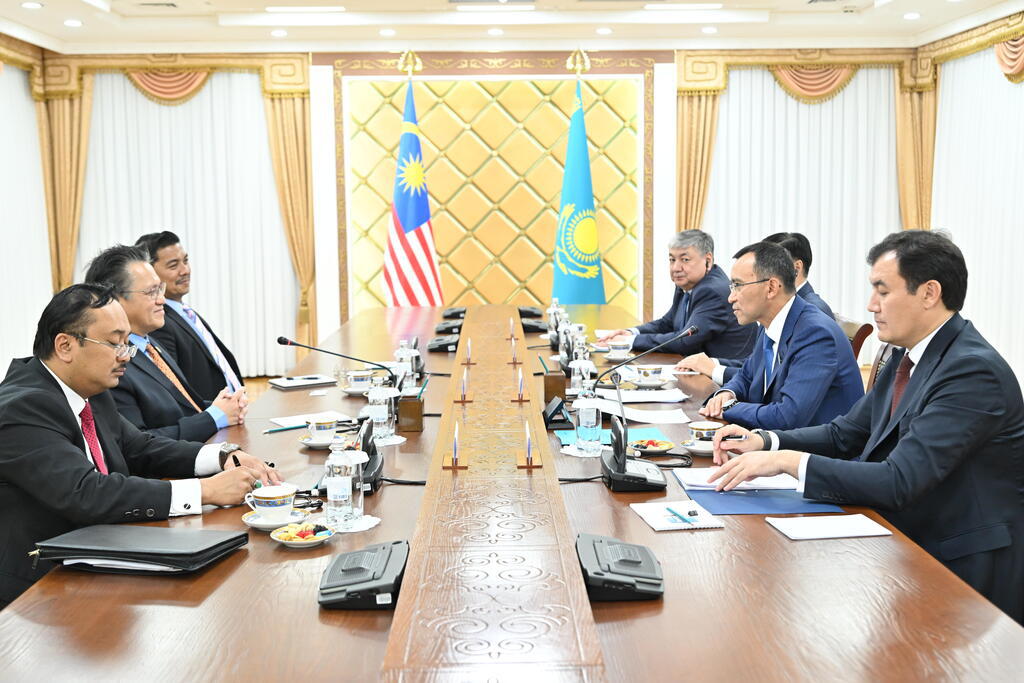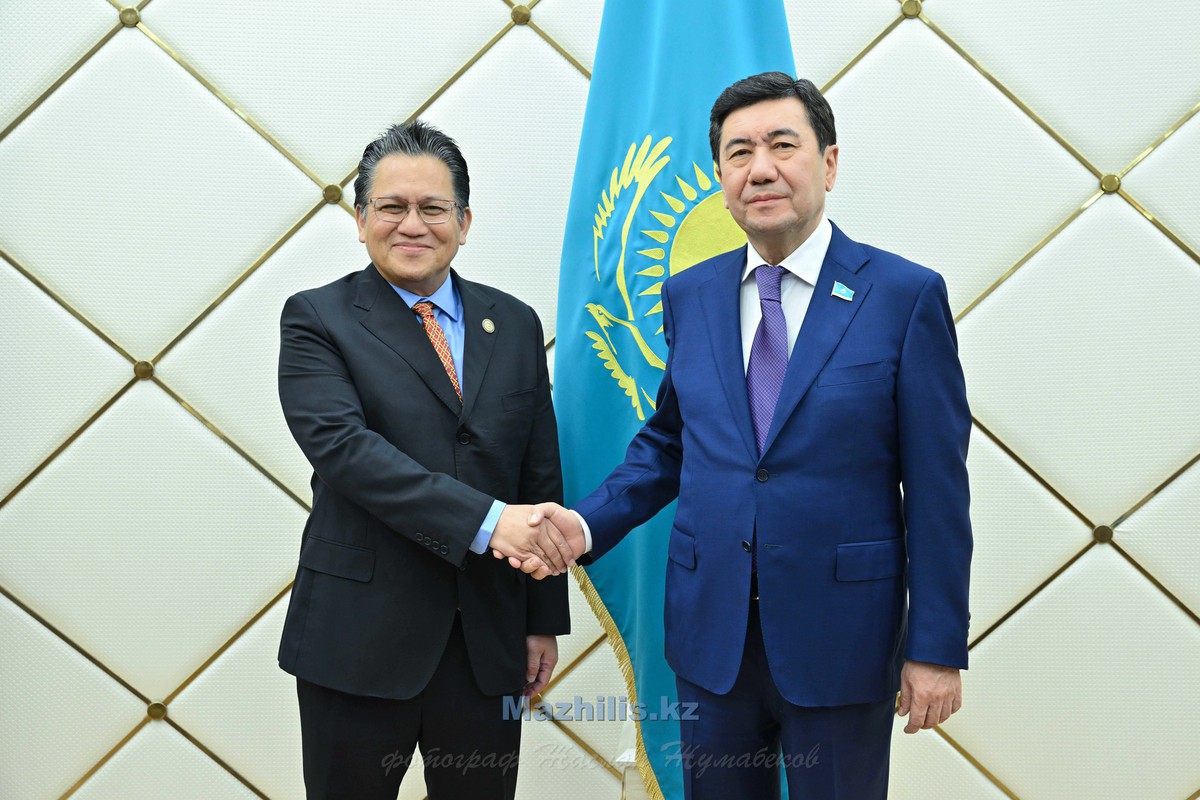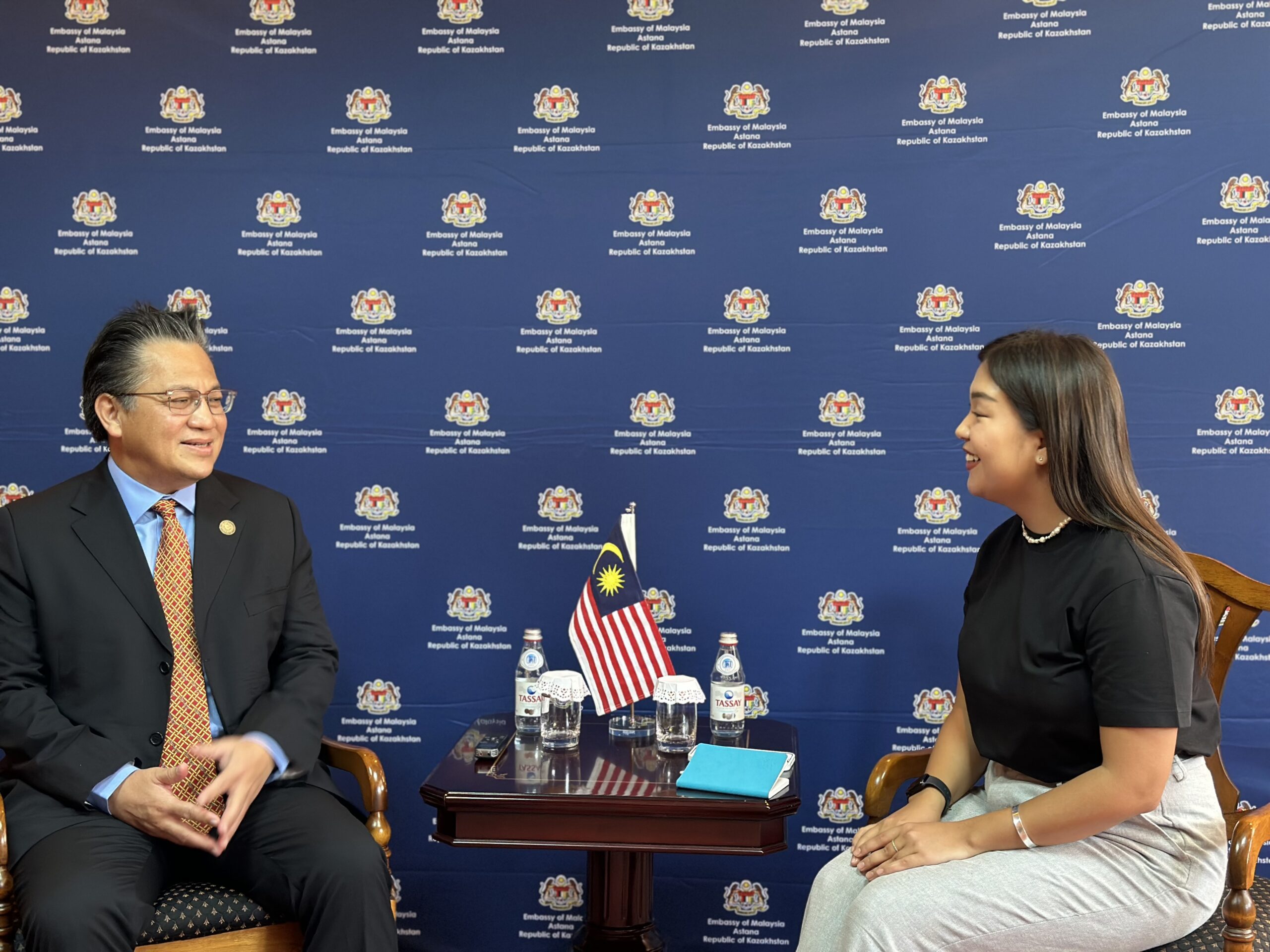ASTANA – Nur Jazlan Mohamed, deputy president of the Senate of the Malaysian Parliament, visited Kazakhstan this week to foster inter-parliamentary dialogue with Kazakhstan, a month since Malaysian Prime Minister Anwar Ibrahim made his inaugural visit to the Central Asian nation.

Nur Jazlan Mohamed said his visit is a follow-up following Malaysian PM’s visit in May. Photo credit: Nargiz Raimbekova / The Astana Times
“I have heard many good things about Kazakhstan. I have always planned to visit Kazakhstan. I have been to Uzbekistan three times, Kyrgyzstan, and I just came from Tajikistan. It is a privilege for me to be here in Kazakhstan, and the impression that I was given is correct: Kazakhstan is a beautiful country and has great potential,” said Nur Jazlan Mohamed in an interview with The Astana Times.
“I think that is why our prime minister decided to make a visit to Kazakhstan to strengthen the relationship between the two countries in terms of the executive [level]. One month later, I am here at his behest to strengthen the inter-parliamentary relationship between the two countries,” he added.
Back in May, Malaysian Prime Minister Anwar Ibrahim met with President Kassym-Jomart Tokayev and participated in a business roundtable that saw the signing of agreements and memorandums worth over $350 million. According to the Kazakh government, 48 companies with Malaysian capital operate in Kazakhstan, and 17 joint investment projects surpassing $410 million are in progress.
Inter-parliamentary dialogue
While in Astana, Nur Jazlan Mohamed met with Maulen Ashimbayev, chairman of the Senate, an upper chamber of the Kazakh Parliament, and Yerlan Koshanov, chairman of the Mazhilis, a lower chamber of the Parliament.

Maulen Ashimbayev and Nur Jazlan Mohamed during their meeting in Astana on June 13. Photo credit: senate.parlam.kz
“We hope that we can come up with some framework of cooperation to help the executives of the two countries to realize the cooperation, especially in terms of the economy, trade, investment, student exchanges, and tourism,” he said.
One of the main objectives of his visit was to enhance inter-parliamentary relations and “formalize the formation of the Friendship Group” on the Senate side.
“Since Kazakhstan is a bicameral parliament with two chambers, I think it is also beneficial for the Senate to form a friendship group so that there is regular communication. (…) We can perform our duties as a bridge between the two parliaments and act as a back channel if the executive is too busy or if there are any pressing issues that need to be addressed,” he said.

Nur Jazlan Mohamed and Yerlan Koshanov during their meeting in Astana on June 13. Photo credit: parlam.kz
According to him, sharing best practices is also one of the ways in which inter-parliamentary dialogue can work.
“I think we can share best practices, especially on the conduct of elections, on parliamentary procedures to encourage a more vibrant debate, especially on the voting procedures, and also on the management of parliamentary affairs. There is great scope for us to share those important matters,” said Nur Jazlan Mohamed.
Cooperation with big potential
Speaking of promising areas in the short term, Nur Jazlan Mohamed immediately pointed out tourism. In March, Air Asia, Malaysia’s budget airline, launched direct flights from Almaty to Kuala Lumpur, bringing the two countries closer.
“I was told that winter in Kazakhstan is six months in a year. I can guess that minus 25 degrees Celsius is not a pleasant temperature,” said the Malaysian official.
Highlighting Malaysia’s vibrant tourism industry, he expressed his hope to attract more Kazakh tourists, so that they can try nasi lemak, Malaysia’s traditional dish, and Malaysian nationals can try Kazakh beshbarmak.

Nur Jazlan Mohamed and The Astana Times Senior Editor Assel Satubaldina during the interview in Astana. Photo credit: Nargiz Raimbekova / The Astana Times
“Vice versa, Malaysians are affected by the heat, and they can come to Kazakhstan for a nice winter holiday. (…) Our budget airline Air Asia has started its services to Almaty. Hopefully, they can also start their services in Astana so you can bring more people,” he said.
He emphasized that the two economies benefit significantly from an increasing tourist flow. According to Tourism Malaysia, a state-owned agency tasked with promoting tourism, Kazakhstan is one of Malaysia’s emerging tourism source markets, contributing 8,298 tourist arrivals in 2023.
In the long term, Nur Jazlan Mohamed sees significant potential for Malaysia and Kazakhstan to cooperate in technical and technology-related businesses. He noted that Malaysia is investing heavily in cloud computing and data centers.
“Microsoft and Google are planning to invest $2 billion to build their facilities in Malaysia, and many other U.S.-based and East Asia-based technology manufacturers are going to invest in Malaysia. We can also share our expertise on technology and technical issues with Kazakhstan,” he said.
Boosting student exchanges
Another cornerstone of bilateral ties is educational exchange programs. Nur Jazlan Mohamed is keen to explore the possibility of increasing scholarships for Kazakh citizens to study in Malaysia. According to data from the Kazakh Embassy in Malaysia, more than 200 students from Kazakhstan are studying in Malaysia as of 2023.
“We can look at scholarship programs to increase the number of Kazakh students studying in Malaysia, and therefore they can have a better understanding of Malaysia and become our ambassadors for Malaysia in Kazakhstan. There is also potential to encourage private education institutions in Malaysia to set up colleges here in Kazakhstan,” he added.
He also suggested increasing cooperation in vocational training. “We have a good skills training program. Kazakhstan has a very young population. Not every young person can go to university. They might not have the same interests, but they can enroll in vocational training. Skills are a lifetime asset to them,” he said.
Intangible investment
Nur Jazlan Mohamed noted the opportunities to collaborate in disaster management, which he described as an “intangible investment.” He mentioned the devastating spring floods in Kazakhstan and said that floods of a similar scale happen in Malaysia several times a year.
“We have that problem several times in a year. How you manage it, weather forecasting, logistics planning before the event, and then when the event occurs, evacuation of people who are affected. We have a very good system that we have developed because of our own climate change issues, especially concerning flooding. That may be an intangible investment. If such disasters occur, it will help to minimize the impact and the financial or social cost on Kazakhstan as well,” he said.
The senator also suggested Malaysia can share a de-radicalization program with Kazakhstan, which it has developed to combat extremist ideologies.
Central Asia as a growth region
He recalled the Malaysian PM’s Central Asia tour in May, noting its crucial objective was to “reenergize” relations between Malaysia and Central Asia that are based on shared cultural and Islamic links.
“Because we can see that Central Asia is the next growth region of the world. If you manage to get your energy and water issues resolved, I think Central Asia will be doing very well,” said Nur Jazlan Mohamed.
He concluded by asserting Central Asia’s strategic importance, expressing Malaysia’s keen interest in being part of the region’s growth.
